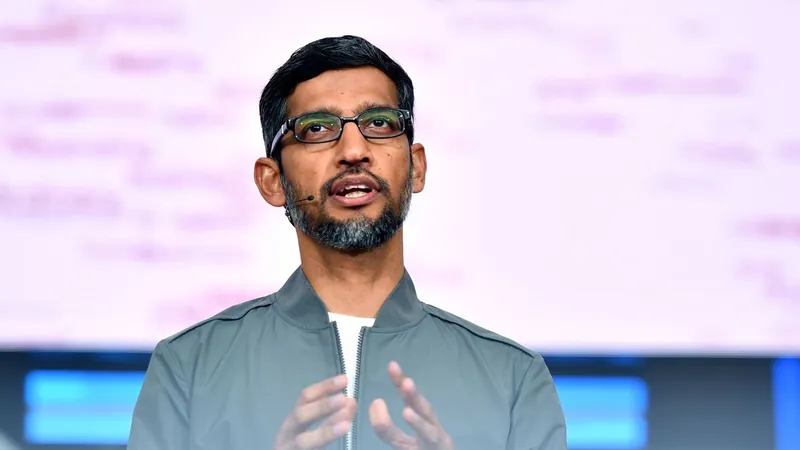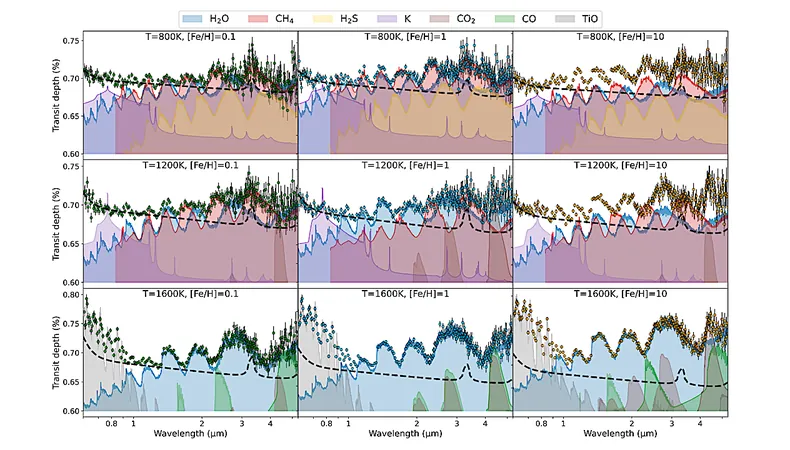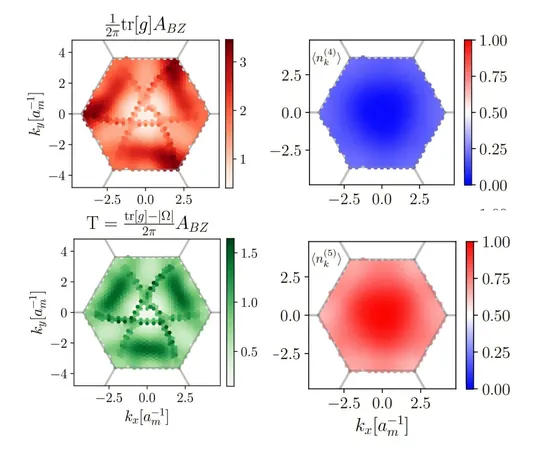
Department of Justice Plans Major Move to Break Google's Search Monopoly!
2024-11-19
Author: William
Introduction
In a groundbreaking legal development, the U.S. Department of Justice (DOJ) is reportedly preparing to take significant action to dismantle Google's dominance over the search engine market. This follows a recent ruling by federal judge Amit Mehta, who unambiguously stated, "Google is a monopolist," asserting that the tech behemoth has violated the Sherman Act.
DOJ's Proposals
According to a report by Bloomberg, the DOJ intends to present a proposal to Judge Mehta requiring Google to divest multiple sections of its business, potentially including its widely-used Chrome browser. Antitrust officials propose that in addition to the sale of Chrome, Google should also be compelled to detach the Android operating system from its search services and the Google Play Mobile app store. This could drastically change how these services operate and interact with competitors.
Market Impact
Google has spent years and invested billions into locking down exclusive contracts to secure its status as the predominant search engine, dominating over 90% of search traffic. This stronghold has stifled competitors, such as Microsoft's Bing and DuckDuckGo, from making significant market gains, restricting them to a mere combined share of about 6%.
Wider Competitive Landscape
The DOJ's recommendations are expected to widen the competitive landscape. Proposed measures include imposing tight data licensing requirements, which would facilitate greater access for competitors and allow innovation in the search sector. A particularly noteworthy suggestion involves Google selling its "click and query" data and syndicating its search results independently—transforming the current model of restricted access that prevents broader tool integration in search engines.
Implications for the Tech Ecosystem
If these proposals are accepted, the implications could echo throughout the entire internet and tech ecosystem, including advancements in Artificial Intelligence, as companies would gain more access to data necessary for innovation.
Historical Context
This case isn't just any legal skirmish; it's being viewed as the most significant attempt to rein in big tech since the government’s notable attempts to break up Microsoft over two decades ago. The antitrust lawsuit began under the Trump administration in 2020 and continued amid ongoing political changes transitioning to the Biden administration. The landscape remains uncertain as to how forthcoming administrations might handle the case.
Google's Response
Google has contested the DOJ's allegations vigorously, with its Vice President of Regulatory Affairs stating that the proposals brought forth by the Justice Department represent a "radical agenda" that could undermine both consumers and the technological leadership of the United States.
Next Steps
The trial, which extended for ten weeks in the fall of 2023, reached its closing arguments in May 2024. Judge Mehta has scheduled a two-week hearing in April to determine how Google will be obligated to rectify its monopolistic practices, with a final ruling expected by August 2025.
Conclusion
The outcome of this landmark case may reshape the digital landscape as we know it. Stay tuned for updates on this pivotal battle as it unfolds!









 Brasil (PT)
Brasil (PT)
 Canada (EN)
Canada (EN)
 Chile (ES)
Chile (ES)
 España (ES)
España (ES)
 France (FR)
France (FR)
 Hong Kong (EN)
Hong Kong (EN)
 Italia (IT)
Italia (IT)
 日本 (JA)
日本 (JA)
 Magyarország (HU)
Magyarország (HU)
 Norge (NO)
Norge (NO)
 Polska (PL)
Polska (PL)
 Schweiz (DE)
Schweiz (DE)
 Singapore (EN)
Singapore (EN)
 Sverige (SV)
Sverige (SV)
 Suomi (FI)
Suomi (FI)
 Türkiye (TR)
Türkiye (TR)